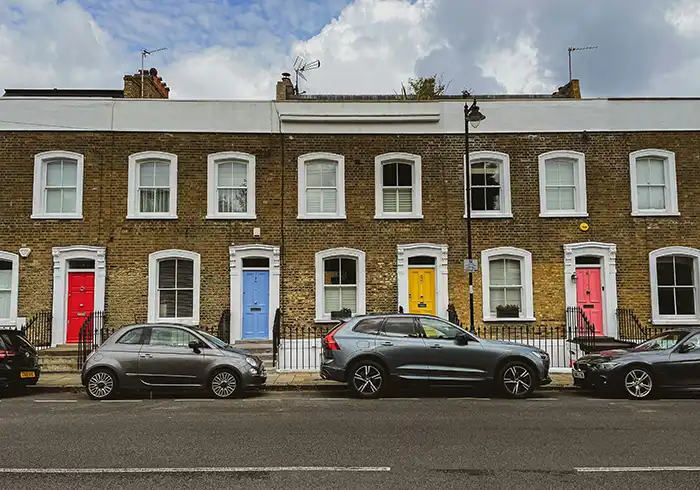
If you’re living in Australia but have ties to the UK, such as rental income, a UK pension, or property you’ve sold—this guide is for you. Whether you’re a UK expat, an Australian National, or any other National resident in Australia, we’ll walk you through what you need to know to stay compliant with HMRC, claim the reliefs you’re entitled to, and avoid unnecessary tax bills.
Filing a UK Tax Return from Australia
As a UK non-resident, you won’t be able to file your UK tax return using HMRC’s standard online service. Instead, you’ll need to file through a UK-registered tax agent or use commercial software. At Tax City UK, we specialise in helping non-residents file their tax returns online quickly and securely, whether you're an expat, non-resident landlord or an Australian National receiving UK income, we can file your return using our own UK agent portal.
UK Rental Income and the Non-Resident Landlord Scheme

If you start receiving UK rental income, you're required to notify HMRC by 5 October following the end of the tax year in which the income began. The UK tax year runs from 6 April to 5 April the following year.
Even if you make no profit, or even a loss—you should still file a tax return to report it. UK tax is calculated on net profit, not gross rent.
Letting UK property while living abroad means you fall under HMRC’s Non-Resident Landlord (NRL) Scheme. Unless you apply for exemption, your letting agent (or tenant) must deduct basic rate tax from your rental income before paying it to you.
Why apply for NRL exemption?
- If you're eligible for the UK personal allowance, this tax deduction often leads to an overpayment of tax.
- Expenses you pay directly, such as; mortgage interest landlords insurance, aren't considered when tax is deducted at source.
You can apply for an exemptionfrom tax deducted at source by submitting Form NRL1i, and each owner must apply separately. We can handle this for you, it's one of the first steps we help new clients take.
If you do not want to apply for NRL exemption, you must file a tax return if you want to reclaim any overpaid NRL tax.
What Income and Expenses to Report
Rental Income
You must report the gross rental income, that is, the total rent paid by the tenant in the tax year, whether to you or to a letting agent, before deducting any expenses. This figure can be taken from your bank statements if paid directly to you, or from your letting agent’s landlord statements. For example, if your tenant pays £1000/month, you must report a gross income of £12,000 for the tax year.
Allowable Rental Expenses

You can deduct expenses that are wholly and exclusively for the rental business, including:
- Letting agent fees
- Mortgage interest (see note below)
- Buildings insurance
- Repairs and maintenance (not improvements)
- Ground rent and service charges
- Accountant’s fees
- Legal costs for renewing short leases
- Advertising for tenants
- Safety certificates and compliance checks
- Use of home as office (if applicable)
If you own more than one property, expenses and income are pooled together for tax purposes. For jointly owned property, each owner reports their share.
Joint Ownership and Married Couples
Married couples and civil partners must generally split income 50/50 unless the property is legally owned in unequal shares and you’ve submitted Form 17 with a Deed of Trust to HMRC and this has been accepted by HMRC.
Where one partner qualifies for the UK personal allowance and the other does not (e.g. mixed nationalities), the tax position may differ, even with equal ownership. Each owner must apply separately for NRL exemption.
Since 2020/21, mortgage interest can no longer be deducted from gross income. Instead, non-resident landlords receive 20% basic rate tax relief on the interest costs. This restriction will only impact you if you are a higher rate taxpayer.
Only repairs are deductible against rental income. Examples include:
- Replacing gutters, repairing leaking roof
- Repairing electrics, or a broken tap
- Fixing broken appliances or windows
Improvements like extensions, upgrading kitchens/bathrooms, or structural upgrades, can’t be deducted against rental income but may reduce your Capital Gains Tax bill when you sell the property.
Double-glazing to replace single-glazed windows is generally accepted as a modern equivalent repair and is allowable.
If your rental property is furnished, you can claim costs for replacing domestic items (e.g. beds, sofas, white goods) under the Domestic Items Relief. The key points:
- Only replacements are deductible, not initial purchases
- Items must be “like-for-like” (not an upgrade)
- The full cost of the replacement can be claimed in the year you replace it
If you use the property personally (e.g. during holidays), you must reduce your expense claims proportionally. For example, if you stayed in the property for 3 weeks, that’s roughly 6% private use, so only 94% of expenses are allowable.
You must keep accurate records for at least 6 years, including:
- Rent receipts or agent statements
- Mortgage interest statements
- Bills and repair invoices
- Proof of ownership share (for joint owners)
Even simple spreadsheets or cashbooks are acceptable—just make sure they’re complete and backed by documentation.
If you're living in Australia and receiving a UK State Pension, private pension, or employer pension, you may be entitled to full tax relief under the UK/Australia tax treaty.
This means your UK pension income can often be removed from UK tax calculations entirely, even if tax has already been deducted at source. We claim this relief on your behalf via Form HS304, submitted with your tax return.
Where tax has been deducted already, it can often be reclaimed, potentially saving hundreds or thousands over time.

If you sell UK property while living in Australia, you're required to report the disposal to HMRC and pay the tax due, if any, within 60 days of completion, even if you don’t normally file a UK tax return.
Key Points:
- Applies to sales, gifts, or transfers of UK land/property
- Each co-owner must file their own report
- There are multiple ways to calculate gain (e.g. using April 2015 rebasing or time apportionment) and we’ll help you choose the most tax-efficient
Each person also gets an Annual Exempt Amount, which can reduce or eliminate CGT depending on the final gain.
Late filing can attract penalties, so don’t delay. Even if no tax is due, a report is still required.
At Tax City UK, we specialise in helping UK property landlords meet their tax obligations with confidence. Here’s what we offer:
- Fast setup and online UK tax return filing
- NRL scheme applications
- CGT reporting within the 60-day deadline
- Tax treaty claims for UK pensions
- Support with record keeping and expense claims
We handle the paperwork, so you can focus on living your life abroad, knowing your UK tax affairs are in safe hands.
Get in touch or register for our services and we’ll guide you through every step.
